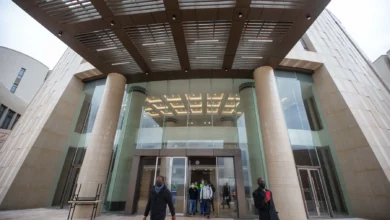Unveiling the hidden tradition: Zim burial societies ensure dignified farewells
Unveiling the hidden tradition: Zim burial societies ensure dignified farewells
FUNERALS in Zimbabwe — from the moment one is declared dead to the day of the burial — are extravagant affairs where no expenses are spared, even for the most financially strained households.
Amid this backdrop, there is a unique tradition that continues to thrive in Bulawayo. Every first Sunday of the month, Gogo Munacho Chauke dresses in a maroon skirt, white shirt, and dons a black beret. She leaves her home in Emakhandeni suburb to attend a four-hour meeting at the nearest beer garden, where she joins other members dressed in identical attire.
This gathering represents something deeply rooted in Zimbabwean culture — burial societies.
While life assurance companies exist, burial societies still hold strong, especially among the older generation. Chauke, a member of a burial society consisting of 37 elderly individuals, sheds light on their purpose.
“We meet every month to contribute to the burial society savings, money that we use when one of our members passes away. A member can choose to add other beneficiaries from their family, ensuring their well-being after they are gone. The more beneficiaries a member registers, the higher the monthly subscriptions. I pay R8 for myself and my two grandkids.”
In Mzilikazi suburb, there stands a building that towers over its surroundings, earning the nickname “The Mortuary.” Contrary to popular belief, an elderly woman, who preferred to remain anonymous, reveals that it is, in fact, the headquarters of The African National Burial Society.
“The sign at the gate clearly says that this is a burial society, yet people still insist on calling it an old mortuary. We cater to numerous burial societies, some from as far as Ntabazinduna, who utilise this place when they lose a member. Although no bodies are kept here, burial society members bring the funeral procession of their deceased member from the mortuary before proceeding to the burial site. In fact, community members opposed having a mortuary in such close proximity to their homes,” she said.
The African National Burial Society, overseen by a board, leases the building from the Bulawayo City Council. A brief investigation into the society reveals its establishment in the 1960s, with the noble goal of providing Bulawayo residents the opportunity to give their loved ones a dignified farewell.
Zimbabwean funerals are often a reflection of the deceased’s social standing in life. The choice between expensive caskets and modest pine coffins communicates the person’s status or the financial resources of those responsible for the funeral arrangements.

The African National Burial Society, Mzilikazi Parlour
Local funerals are open to all, with no need for formal invitations or RSVPs. Gogo Chauke expresses her concerns about her own passing, saying, “That’s what I worry about when I die — will there be enough food for the mourners? Will there be sufficient transportation to ferry all my church members, friends, and relatives to the cemetery? I can only hope that the money from my burial society will be enough to cater to all of that.”
Unfortunately, many families find themselves in dire financial situations after the death of a relative.
Cultural expectations often compel even the most impoverished families to stretch their budgets to ensure proper funerals.
For individuals like Gogo Chauke, missing payments for burial society monthly contributions adds another layer of worry.
According to her, three missed payments result in dismissal from the burial society without any payout, exacerbating the burden on families during an already challenging time.




